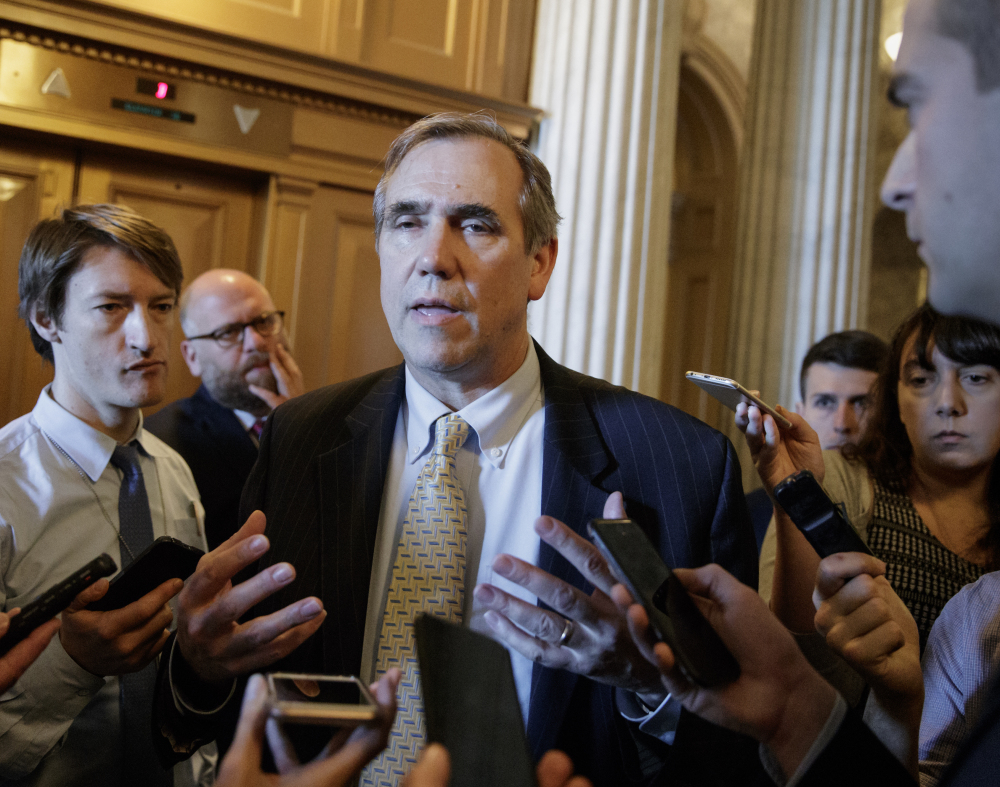WASHINGTON — Senate Democrats elevated their attacks against President Trump’s Supreme Court nominee Wednesday, portraying him as an ally of the powerful and an enemy of the weak as an explosive showdown loomed on the Senate floor. Republicans defended Judge Neil Gorsuch, accusing Democrats of trying to block him out of frustration over Trump’s election victory.
“Democrats would filibuster Ruth Bader Ginsburg if President Donald Trump nominated her,” said Majority Leader Mitch McConnell, R-Ky., naming one of the more liberal sitting justices. “There is simply no principled reason to oppose this exceptional, exceptional Supreme Court nominee.”
Democrats begged to differ, returning again and again to McConnell’s decision last year to deny consideration to then-President Barack Obama’s Supreme Court nominee, Judge Merrick Garland, who was ignored for nearly a year by Senate Republicans after the death of Justice Antonin Scalia.
Instead McConnell kept Scalia’s seat open, a calculation that is now paying off hugely for Republicans and Trump, who will be able to claim the biggest victory of his presidency to date if Gorsuch is confirmed on Friday as expected.
“For the first time in history, we are considering a nominee for a stolen Supreme Court seat, and that alone should be reason for everyone who cares about this institution to turn down this nominee,” Sen. Jeff Merkley, D-Ore., said on the Senate floor as he wrapped up a 15½-hour overnight talk-a-thon to underscore his party’s opposition to Gorsuch. “This is an extreme nominee from the far right who doesn’t believe in the fundamental vision of ‘We the People.”‘
First, though, looms showdown votes Thursday, when 44 Democrats and independents intend to try to block Gorsuch by denying Republicans the 60 votes needed to proceed to final passage. McConnell and Republicans intend to respond by unilaterally changing Senate rules to remove the 60-vote filibuster requirement for Gorsuch and all future Supreme Court nominees, reducing it to a simple majority in the 100-member Senate.
The pending developments prompted much hand-wringing from senators on both sides of the aisle about the future of the Senate as a bipartisan and deliberative body, though they themselves were in position to prevent it from happening and failed to do so.
Moderate Republican Sen. Susan Collins of Maine said about 10 senators from both parties worked over the weekend to come up with a deal to stave off the so-called “nuclear option,” as the rules change is known, but couldn’t come to agreement. Sen. Chris Coons of Delaware was at the center of talks on the Democratic side. In 2005, a bipartisan deal headed off Republican plans to remove the filibuster barrier for lower-court nominees, although in 2013 Democrats took the step instead, leaving the filibuster in place only for Supreme Court justices.
Copy the Story LinkSend questions/comments to the editors.



Success. Please wait for the page to reload. If the page does not reload within 5 seconds, please refresh the page.
Enter your email and password to access comments.
Hi, to comment on stories you must . This profile is in addition to your subscription and website login.
Already have a commenting profile? .
Invalid username/password.
Please check your email to confirm and complete your registration.
Only subscribers are eligible to post comments. Please subscribe or login first for digital access. Here’s why.
Use the form below to reset your password. When you've submitted your account email, we will send an email with a reset code.